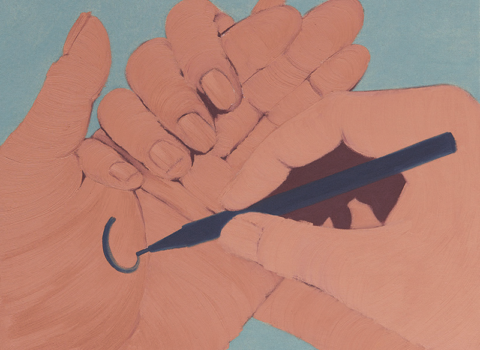From Unfinished Business: Notes of a Chronic Re-reader, a collection of essays published next month by Farrar, Straus and Giroux.
The other day I was asked a question of fact that I could not answer about a book I had once known well but hadn’t looked at in years. Naturally, I thought that if I just riffled through it, I’d soon have the information that now eluded me. As it happened, the copy of this book that had been sitting on my bookshelf, untouched for decades, was a cheap 1970s paperback that began to fall apart in my hands no sooner than I had picked it up. I turned back the cover and the first page instantly came away from the spine of the book; then page after page came loose and bits of paper from their crumbling edges began to rain down. Soon I was looking at more than four hundred loose pages lying all about, on my lap, on the desk, on the floor.
Somehow, this devastation of the book went through me like an electric shock. It was as though the physical book had been a living thing, and I could not bear to sweep its tortured remains into the trash. I began picking up random pages, holding one after another up close to my eyes as if committing to new memory its fading print, and then to my nose, as if intent on inhaling some essence of book. After that, I alternated between concentrating on individual pages and examining the dried-out glue along the spine, as if it held some scientific secret that would explain what had happened.
Suddenly my attention was caught by the sight of a sentence I must have underlined some forty years ago, and after that a paragraph I’d circled, and in a margin two exclamation points standing side by side. I looked first at the underlined sentence: it puzzled me. Why did you underline this, I asked myself, what’s so interesting here? Then again, look at this one you’ve also underlined—how obvious!—what were you thinking? My eyes drifted to a sentence on the page opposite where nothing was underlined, and I thought, Now here’s something really interesting, how come this didn’t attract your attention all those years ago?
How come indeed.
I began to read the various pages with reader’s marks on them; and then I began to piece them together, like an archaeologist poring over ancient fragments to see which order will yield some design worth having been excavated, and soon enough I saw my younger reading self clear enough, marveling at the most elementary insights this wonderful book had yielded up. Very nearly, it was as though I’d written “So true!” all over the margins.
I put the pages back together in their proper order and sat down to read the book anew, this time underlining and circling in a pen of another color the sentences and passages that now struck me as worth noting. Then I bound the pages together with a thick rubber band and put the book back on the shelf where it had been sitting all this time. I hope I live long enough to read it again, with a pen of yet another color in hand.




